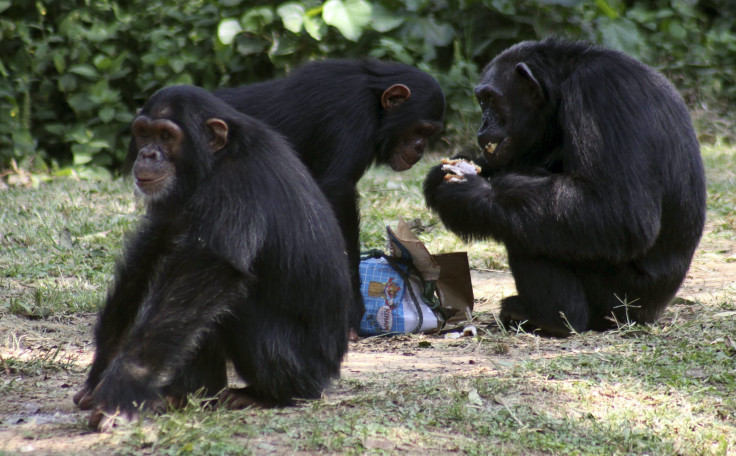Chimpanzee Rights? Group Sues For Personhood Rights For 4 New York Great Apes

Attorney Steve Wise made a stop at a courtroom in Niagara Falls, N.Y., on Tuesday to file on behalf of a very unusual client: a chimpanzee.
Wise is president of the Nonhuman Rights Project, a group that has spent years working out its legal strategy, comparing statutes and weighing the odds, as it pursues its goal of changing the legal status of certain animals from “things” to “beings.”
This week, NhRP plans to file suit on behalf of four chimpanzees in New York, the first step to get courts to recognize their “personhood” rights. NhRP’s first suit was filed on Monday in Fulton County on behalf of a 26-year-old chimpanzee named Tommy. Tuesday’s suit was filed on behalf of Kiko, also 26. NRP is also filing this week on behalf of Hercules and Leo, two young male chimpanzees that are being used for locomotion research at Stony Brook University on Long Island.
Originally, Wise says, NhRP looked at filing on behalf of seven chimpanzees in New York, but three of them died earlier this year, prompting the organization to act.
“We spent five years looking at all 50 states to determine which states might have the most favorable laws for us,” Wise says. “We had to run several thousand evaluations and write some very long memos, and through that we slowly narrowed it down to several states.”
NhRP chose New York as its first legal arena because of the Empire State’s history with the common law writ of habeas corpus, the lynchpin of the group’s legal argument. A writ of habeas corpus requires that a person under arrest be brought before a judge. This procedural maneuver is one of the few cases where a third party has standing to ask for it, and has historically been used by black slaves to challenge their status as property. New York has affirmed that the availability of a common law habeas corpus writ cannot be taken away by legislation, and also allows petitioners to appeal a habeas corpus decision that doesn’t go their way.
Tommy’s owner, Patrick Lavery, told USA Today the chimp is one of 11 that he has rescued from neglect. Lavery also said the cage where Tommy lives is more than in accordance with state and federal standards: In winter, the chimp is inside a building heated to 70 degrees, with concrete walls decorated to look like a jungle landscape.
"I've got 20 years experience with chimpanzees,” Lavery told USA Today. “We're not just some Joe Blow on the street who just happens to have a chimpanzee. I've had animals all my life -- horses, dogs, reindeer. It's not a fly-by-night operation."
But NhRP insists that confining chimpanzees is infringing on their natural rights to autonomy.
“We think the [legal] arguments are excellent and that the scientific facts are in our favor,” Wise says. “And it’s time to stop enslaving these beings.”
NhRP’s suit includes affidavits from scientists that have experience with primates, testifying to the wealth of evidence that chimps are autonomous to a degree approaching, if not meeting, the standard for self-awareness.
University of Leipzig zoologist Christophe Boesch said in his affidavit [PDF] that chimps have an understanding of time – an “autobiographical self” – as evidenced by their capacity for memory of the past and their ability to plan for future events. Different chimpanzee groups in the wild also show signs of symbolic cultural traditions. Chimpanzees also seem to understand the concept of death, and show signs of empathy and compassion for each other.
“What we know now is still only a small fraction of what chimpanzees are capable of,” Boesch wrote.
© Copyright IBTimes 2024. All rights reserved.





















